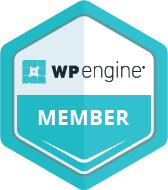There’s a big difference between giving advice and delivering insight.
Advice is everywhere. Insight sticks.
If you want your content to cut through the noise, you need more than tips and tactics. You need to help your audience see something differently. That’s where the insight hook comes in—a shift in thinking that makes the reader stop, reconsider, and lean in.
In this post, I’ll explain why insights drive more engagement than information, how to build them into your content, and why this aligns perfectly with Google’s standards for experience-based, original content.
Why Insights Matter More Than Information
Anyone can look up a best practice or a how-to guide. But insight comes from experience. It’s the difference between saying “post consistently on LinkedIn” and showing why your cadence, format, and narrative arc actually drive better engagement.
Insight is earned. It’s specific. And it often challenges conventional wisdom.
Google’s Search Quality Evaluator Guidelines prioritize content that offers original ideas and real expertise.
Insights show that you’re not just repeating what’s already out there, you’ve internalized it, tested it, and distilled something meaningful.

What Makes an Insight Hook Work
An insight hook doesn’t just educate; it reframes.
It delivers that “aha” moment by:
- Presenting a surprising truth
- Uncovering a common blind spot
- Connecting dots others haven’t
- Providing context that no one’s explained yet
It shifts someone’s understanding from what they think they know to what they didn’t realize they were missing.
Examples of Insight Hooks in Action
1. SEO: “Ranking for the right keyword won’t grow your traffic, ranking for the right intent will.”
2. Conversion Strategy: “Your bounce rate isn’t a content problem. It’s a promise mismatch.”
3. Marketing Funnel: “The mistake isn’t in your lead magnet. It’s in your follow-up sequence that assumes they’re ready to buy.”
Each of these insight hooks invites a shift in thinking, not just another tip to implement.
How to Create Insight-Driven Content
1. Start with what most people believe
Then explain why that belief isn’t always true or is only part of the story.
2. Pull from personal data and observations
Case studies, client experiences, and failed experiments are gold mines for original insights.
3. Ask “so what?” at every step
Dig deeper if your tip doesn’t change someone’s perspective or behavior.
4. Use contrast to frame the difference
Old way vs. new way. Expected result vs. actual result. Contrast creates clarity.
5. Wrap your insight in a story
Make it real. The insight should feel earned, not dropped out of nowhere.
Where Insight Hooks Work Best
Landing Pages: Open with a truth your audience hasn’t considered.
Email Campaigns: Lead with an observation that changes how they read the rest.
Blog Posts: Use insights to anchor sections or reframe takeaways.
Webinars and Talks: Open with a decisive shift that sets up the core message.
LinkedIn Content: Insightful one-liners often outperform long-winded advice.
SEO Bonus: Insight = Experience
Google’s Helpful Content update rewards content written by people with real-world experience.
Insight-driven content often reflects firsthand knowledge in a way that tip-based content doesn’t. It improves:
- Dwell time (because the reader is thinking)
- Sharing behavior (because they want to share the insight)
- Relevance signals (because it aligns with actual user questions and intent)
Insight also gives you natural anchor points for internal linking and thought leadership content.
Wrapping It Up
If your content feels too safe, expected, or similar to your competitors, it’s probably missing insight.
Tips are transactional. Insight builds trust.
Don’t just teach your audience what to do. Help them see something they didn’t before.
Do you need help uncovering the insights in your business that drive real growth?
Let’s build content that creates aha moments at scale.
Schedule a consultation or connect with me on LinkedIn.

